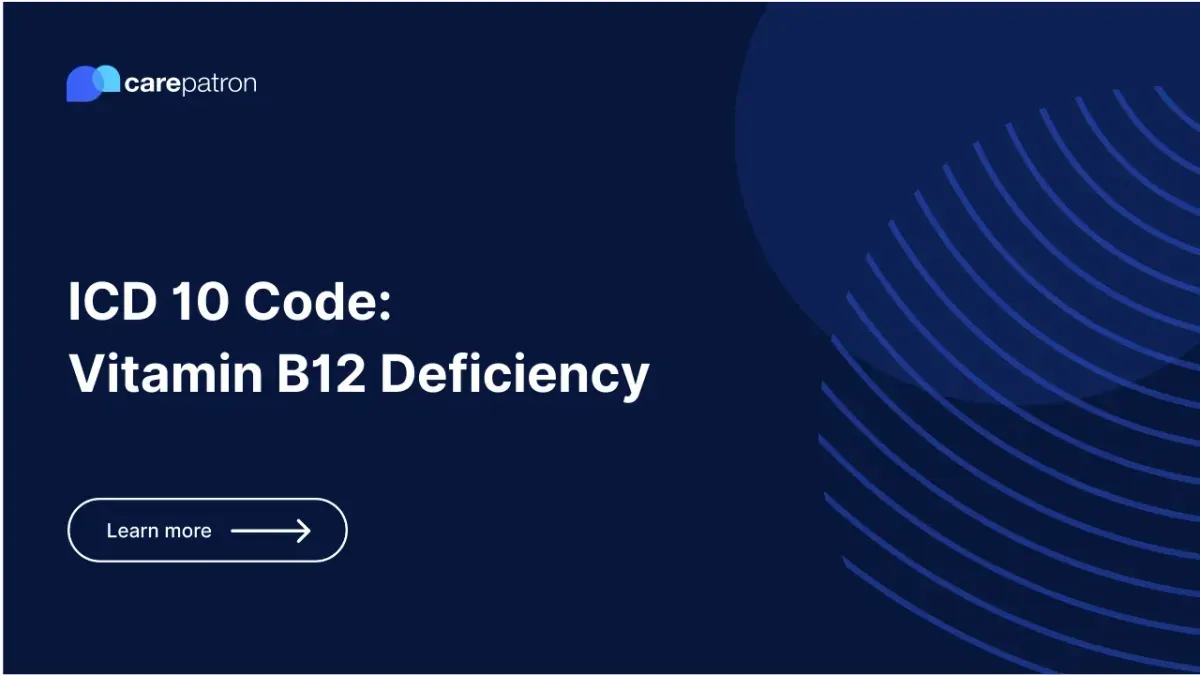
Vitamin B12 Deficiency ICD-10-CM Codes
Discover the ICD-10 codes for Vitamin B12 deficiency. Ensure accurate medical coding and billing for this condition. Simplify diagnosis with proper codes.
Use Code
Commonly asked questions
Use a Vitamin B12 deficiency ICD code when a patient is clinically diagnosed with low B12 levels, supported by lab results or symptoms such as fatigue, cognitive issues, neuropathy, or anemia.
Yes, vitamin B12 deficiency diagnoses are billable. The most specific and commonly used codes are found in the D51 series.
Treatments typically include intramuscular vitamin B12 injections, high-dose oral or sublingual supplements, and addressing underlying causes such as poor diet, malabsorption, or intrinsic factor deficiency.
EHR and practice management software
Get started for free
*No credit card required
Free
$0/usd
Unlimited clients
Telehealth
1GB of storage
Client portal text
Automated billing and online payments
